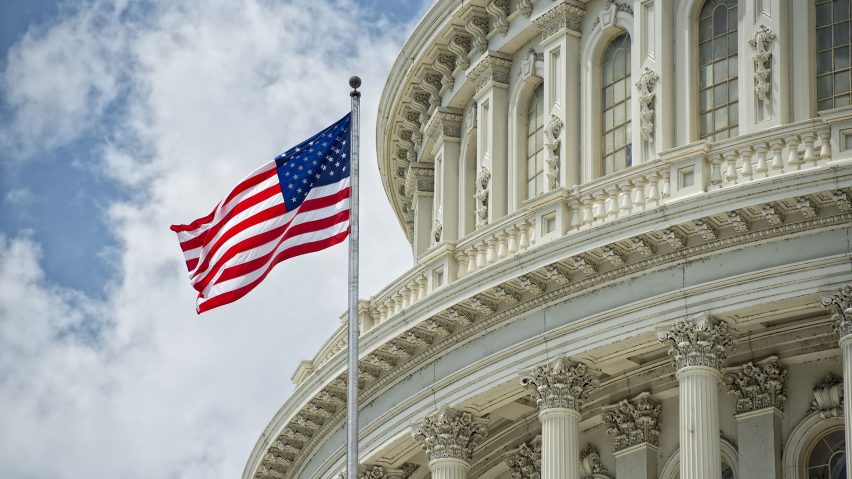The American Institute of Architects has urged Congress to support small architecture firms and their employees as they struggle amid the coronavirus pandemic.
The call comes as small creative businesses in the US fear they could go out of business as the pandemic slows the economy.
In a letter addressed to house speaker Nancy Pelosi and senate majority Leader Mitch McConnell, the American Institute of Architects (AIA) asked for improved aid, including loans and tax breaks, to help architecture firms amid the economic downturn caused by the virus.
AIA calls for relief to save architecture firms
It urged Congress to extend the relief past the HR 6201 bill, which was introduced to offer benefits such as paid sick leave, free coronavirus testing, food assistance and unemployment benefits.
"To address pressing short-term economic needs, AIA urges you to expand temporary relief for business owners to avoid layoffs and the sharp economic downturn that would follow," said the statement.
"Architecture firms come in all sizes, but the majority are classified as small businesses. The relief provided in HR 6201 was an important first step, but more will be necessary. Businesses cannot wait until the next tax filing season to see relief."
AIA has urged Congress to invest in Small Business Interruption Loans so that businesses with 500 employees or under can cover the cost of payroll for employees unable to work due to health issues caused by the virus or working in isolation.
It has also called on Congress to provide loans so that they can cover costs like payroll and rent during uncertain times, and has suggested Congress suspend the collection of business taxes, including payroll tax, for the duration of the pandemic.
In addition, it has asked for changes to offer tax breaks to pass-through entities, which are businesses that pay taxes through the owners, like many architecture firms.
The letter, was sent by AIA president Jane Frederick and chief executive officer Robert Ivy, comes amid economic uncertainty caused by the virus.
"The short term hurt is upon us"
David Galullo, who is CEO of American design firm Rapt Studio, said that measures to confirm economic stability were necessary to ensure that businesses could keep afloat.
"The biggest impact is the uncertainty," Galullo told Dezeen. "There are many reports that have outlined the potential trajectory of the virus globally and the markets are responding to the potential outcome of the potential trajectory but it's all just guessing."
"Financial stability is built on the foundations of societal, emotional and systemic stability," he added. "With uncertainty comes instability, which leads to a big impact on economic health. We are in a 'wait and see' situation at the moment, waiting for the world around us to become certain."
"Construction has all but halted in California"
Galullo said that the short-term effect on the architecture and construction industry was already apparent in California, where all residents are placed under a stay-at-home order.
"From a business perspective, construction has all but halted in California and many of our clients are in a "wait and see" mode," he said. "The long term impact? No one knows, but the short term hurt is upon us."
Barry X Ball, who has a gallery in Brooklyn's Greenpoint neighbourhood, said the art and design industries were already seeing an impact, after a number of high-profile events were cancelled, like ArtBasel Hong Kong, TEFAF spring New York, Frieze New York, and ArtBasel.
"When travel is severely restricted, the artworld grinds to a complete halt (as has occurred over the last few days)," he told Dezeen. "When there is great financial uncertainty, art purchases also almost completely dry up."
"Even the 0.1 per cent get cautious in a storm," he continued. "Most galleries – especially small and mid-size ones – do not have deep enough pockets to maintain their staffing levels for long without the sales opportunities provided by art fairs."
"The mega galleries – Larry Gagosian, Hauser & Wirth, David Zwirner, Pace – will survive. Many of the others will not."
UK introduces financial package to support businesses
While the support offered by the US remains uncertain, the UK government has introduced a huge financial package, worth an estimated £78 billion, to help companies protect jobs during the crisis.
Under the temporary measures, the government will cover up to 80 per cent of salaries for workers that are "furloughed", meaning they are still retained as employees but not engaged in any work. Called the Coronavirus Job Retention Scheme, it will offer payments up to £2,500 per month for each furloughed worker, for up to three months.
The relief package will offer support to a number of small businesses. But the UK's Creative Industries Federation said more needed to be done to help workers without salaried jobs, including freelancers and self-employed workers.
Photograph is courtesy of Shutterstock.

